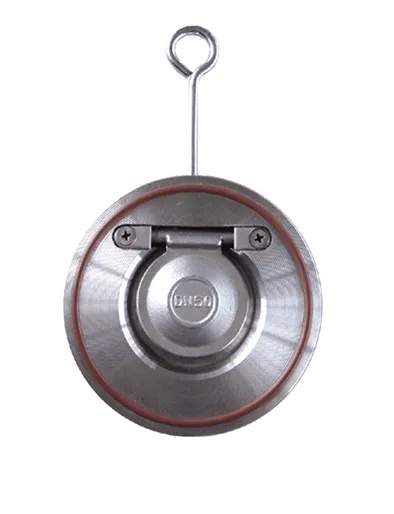9 月 . 12, 2024 00:06 Back to list
Gate Valve Actuator - Efficient Control Solutions for Industrial Applications
Understanding Gate Valve Actuators Function and Importance
Gate valves are essential components in numerous fluid control applications, commonly used in industries such as oil and gas, water treatment, and chemical manufacturing. These valves operate by raising or lowering a gate to control the flow of fluid. However, the efficiency and reliability of gate valves often depend on their actuators. This article delves into gate valve actuators, exploring their functions, types, and significance in industrial operations.
What is a Gate Valve Actuator?
A gate valve actuator is a mechanical device that opens and closes the gate valve by moving the valve stem
. The actuator converts different forms of energy into mechanical movement, allowing operators to control fluid flow remotely or automatically. Depending on the system's requirements, actuators can be powered manually, electrically, pneumatically, or hydraulically.Types of Gate Valve Actuators
1. Manual Actuators These actuators rely on human operators to turn a handwheel, lever, or similar mechanism to operate the gate valve. While they are simple and do not require power, manual actuators may not be practical for large valves or in situations where remote operation or automation is essential.
2. Electric Actuators Electric gate valve actuators utilize electrical energy to drive a motor that opens or closes the valve. These actuators provide precise control and can be easily integrated into automated systems or remote control applications. They are often preferred for their efficiency and ability to handle complex operations, including feedback systems for monitoring.
gate valve actuator

3. Pneumatic Actuators Pneumatic actuators use compressed air to generate movement. They are favored in applications requiring rapid operation and can be designed for fail-safe closure, making them ideal for critical safety systems. However, they require an air supply and can be sensitive to changes in air pressure.
4. Hydraulic Actuators Similar to pneumatic actuators, hydraulic actuators employ pressurized fluid to operate the valve. They are capable of delivering substantial force in compact designs, making them suitable for large gate valves. However, they require careful maintenance to avoid leaks and pressure issues.
Importance of Gate Valve Actuators
The actuator is an integral part of the gate valve, influencing its performance, reliability, and safety. An efficient actuator ensures that the valve opens and closes swiftly, reducing the risk of pressure build-up or fluid leakage. In automated systems, actuators enable seamless control of fluid flow, contributing to process efficiency and safety.
Furthermore, the choice of actuator affects energy consumption and operational costs. For example, while electric actuators may have higher initial costs, they can lead to lower long-term operational expenses due to reduced energy consumption and maintenance needs.
In conclusion, gate valve actuators play a crucial role in fluid control systems across various industries. Understanding the different types of actuators and their functions is essential for optimizing performance and ensuring the longevity and reliability of gate valves. By investing in the right actuator technology, companies can enhance their operational efficiency while ensuring safety and compliance with industry standards.
Share
-
Understanding the Differences Between Wafer Type Butterfly Valve and Lugged Butterfly ValveNewsOct.25,2024
-
The Efficiency of Wafer Type Butterfly Valve and Lugged Butterfly ValveNewsOct.25,2024
-
The Ultimate Guide to Industrial Swing Check Valve: Performance, Installation, and MaintenanceNewsOct.25,2024
-
Superior Performance with Industrial Swing Check Valve: The Essential Valve for Any SystemNewsOct.25,2024
-
Industrial Swing Check Valve: The Ideal Solution for Flow ControlNewsOct.25,2024
-
You Need to Know About Industrial Swing Check Valve: Functionality, Scope, and PerformanceNewsOct.25,2024